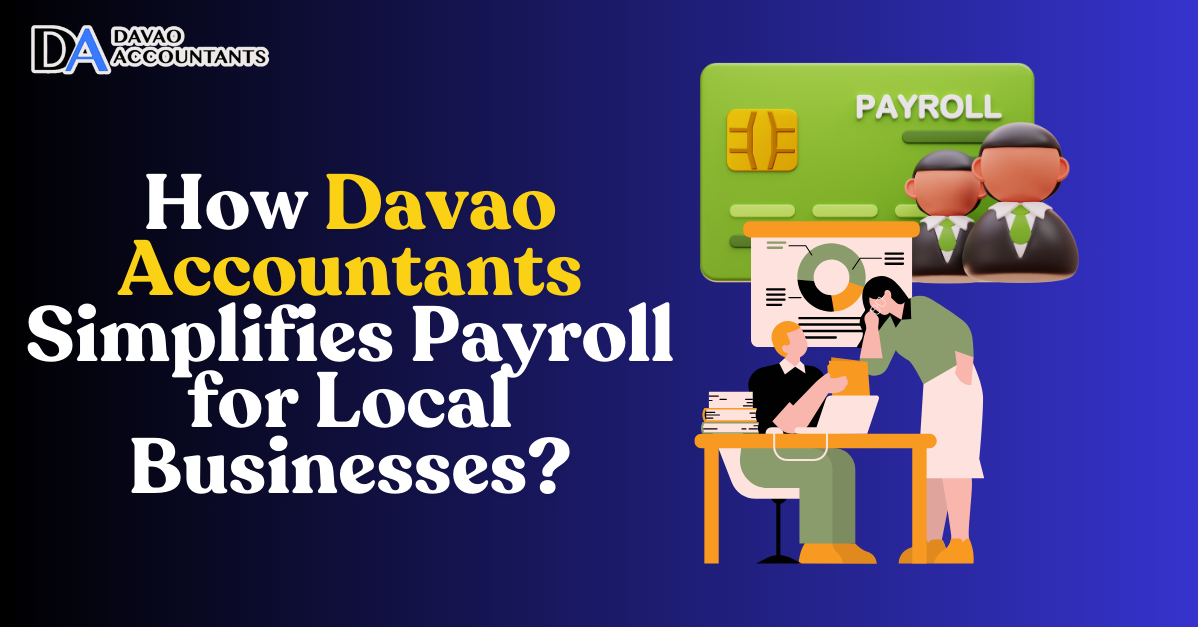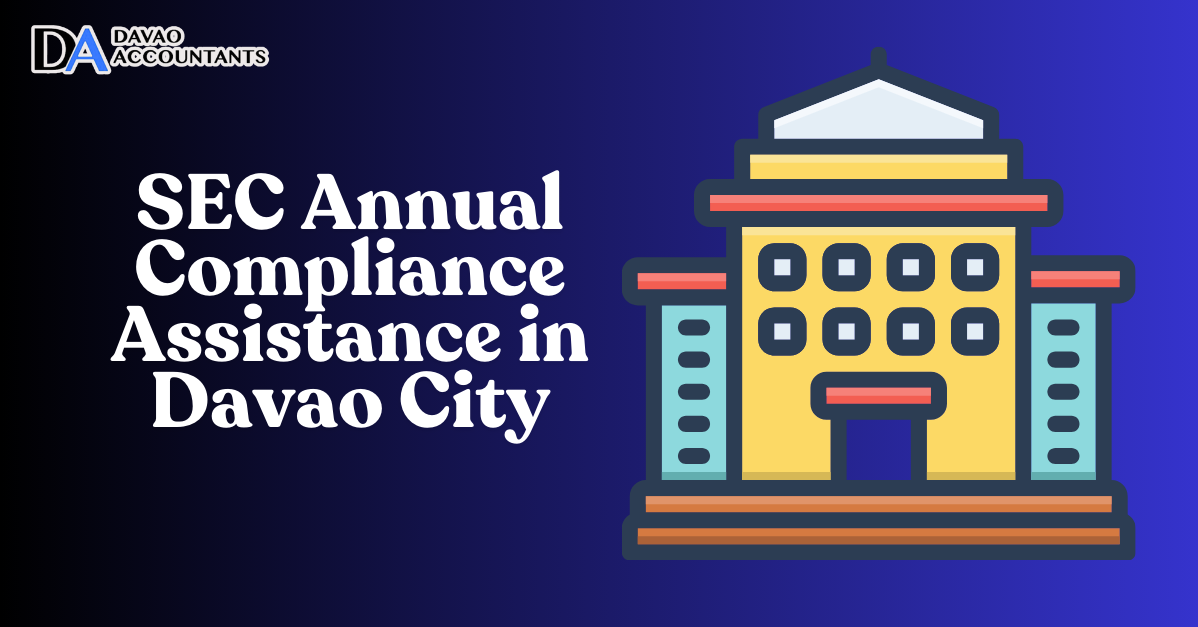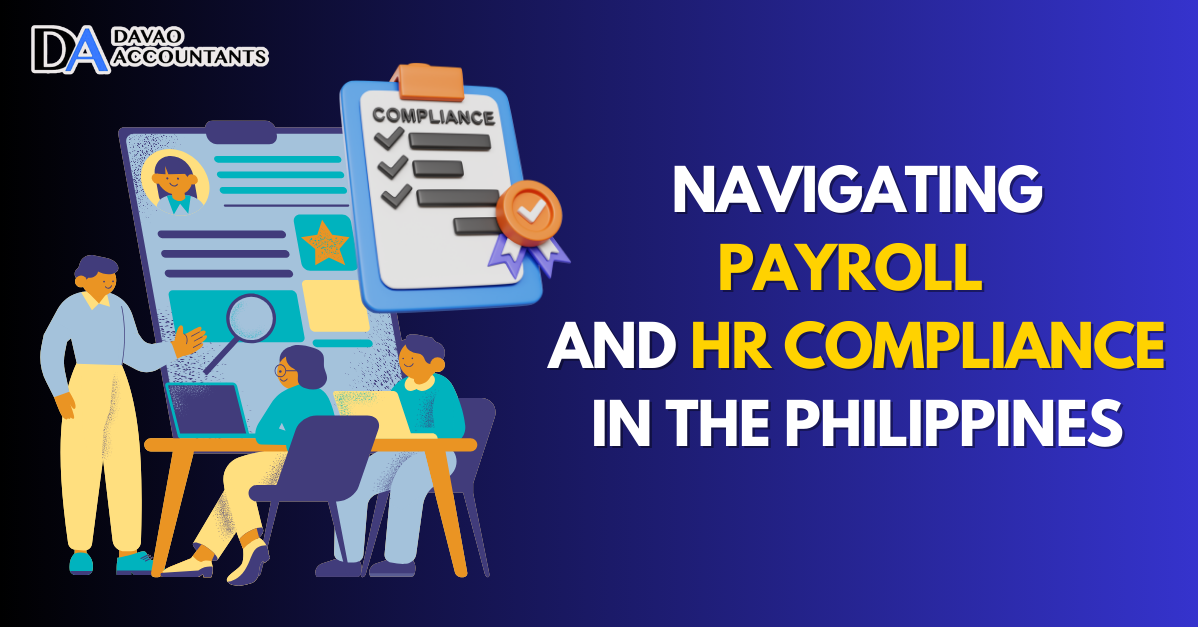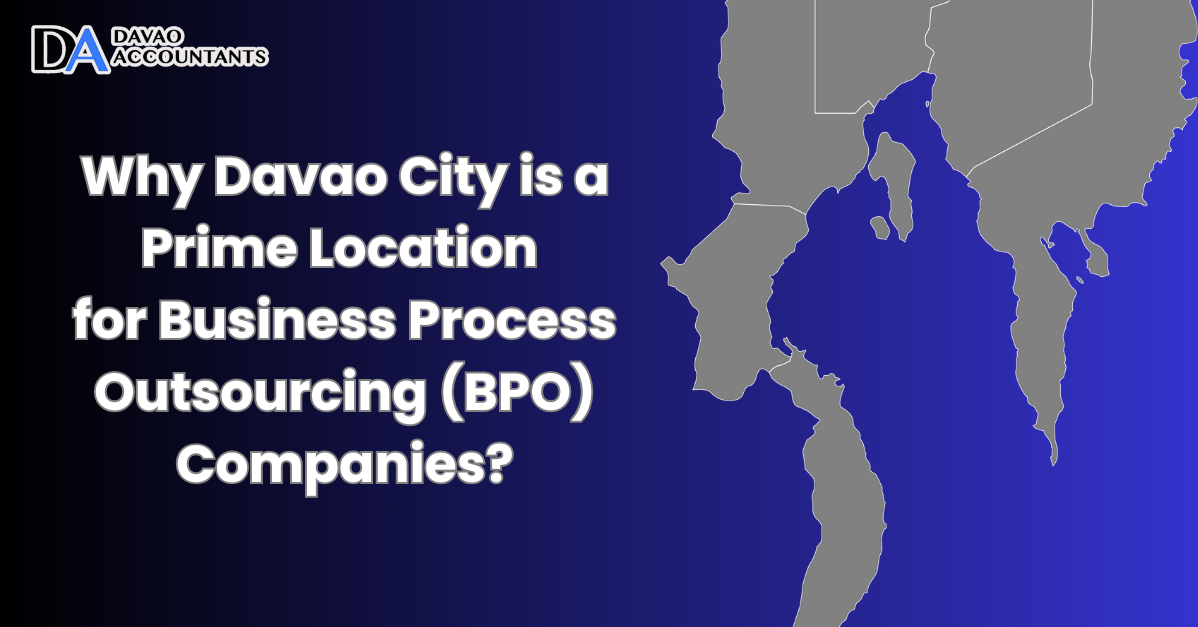Filing business taxes is an essential responsibility for every business operating in Davao City. Adhering to the tax regulations set forth in the 2017 Revenue Code of Davao City is crucial for compliance and the smooth operation of your business.
This guide will walk you through the key provisions of the Revenue Code, helping you understand how to navigate the local tax landscape effectively.
Table of Contents
ToggleUnderstanding the 2017 Revenue Code of Davao City
The 2017 Revenue Code of Davao City governs the taxation system for businesses within the city. It outlines the types of taxes, fees, and charges that businesses must pay, as well as the procedures for assessment, collection, and penalties for non-compliance. The code aims to create a fair and efficient taxation system that supports the city’s development.
Key Business Taxes in Davao City
Here are the primary business taxes imposed under the 2017 Revenue Code of Davao City:
1. Business Permit and Licensing Fee
Every business operating in Davao City must secure a business permit before commencing operations. The Business Permit and Licensing Fee is an annual charge calculated based on the nature and size of the business. The permit must be renewed each year, with payments typically due by January 20.
The fee varies depending on the business category and capitalization. For instance, manufacturers, wholesalers, retailers, and service providers may have different rates. Non-payment or late renewal of the business permit may result in penalties or the suspension of business operations.
2. Local Business Tax (LBT)
The Local Business Tax (LBT) is a percentage tax based on the gross sales or receipts of the business during the preceding calendar year. The tax rates differ depending on the type of business:
- Manufacturers, Wholesalers, and Distributors: Tax is based on gross sales or receipts, with rates ranging from 0.375% to 0.5%.
- Retailers and Dealers: For gross sales of up to PHP 400,000, a fixed rate is applied. For amounts exceeding this threshold, a percentage rate is applied to the excess.
- Service Providers: Tax is computed based on gross receipts, generally at a rate of 2%.
The LBT must be paid quarterly, with payments due on the 20th of January, April, July, and October. Failure to pay on time may result in surcharges and interest penalties.
3. Mayor’s Permit Fee
The Mayor’s Permit Fee is another annual requirement for businesses in Davao City. It is a prerequisite for obtaining the Business Permit and is calculated based on the nature and size of the business. This fee is typically paid along with the Business Permit Fee during the renewal period in January.
4. Community Tax Certificate (CTC) or Cedula
Businesses are required to obtain a Community Tax Certificate (CTC) or Cedula, which serves as proof that the business has complied with local tax requirements. The amount varies depending on the business’s total gross income. The CTC is usually secured during the business permit renewal process.
5. Other Regulatory Fees and Charges
Depending on the nature of your business, you may also be subject to other regulatory fees and charges, such as:
- Sanitary Inspection Fee: For businesses involved in food preparation, healthcare, and other sectors where sanitation is critical.
- Garbage Fee: Based on the volume and type of waste generated by the business.
- Signboard or Billboard Fee: Applicable if your business uses signage or billboards.
Filing and Payment Process
Here’s a step-by-step guide to filing and paying business taxes in Davao City:
1. Prepare the Necessary Documents
Before filing, gather the required documents, including:
- Duly accomplished Business Tax Payment Form
- Latest financial statements or records of gross sales/receipts
- Previous year’s business permit
- Community Tax Certificate (CTC)
2. Calculate Your Taxes
Calculate your taxes based on the guidelines in the 2017 Revenue Code. Ensure accuracy by reviewing your financial records, as errors can lead to penalties.
3. File and Pay at the City Treasurer’s Office
Submit your tax returns and pay the corresponding taxes at the Davao City Treasurer’s Office. Payments can be made in cash, check, or other accepted forms of payment. Ensure you file and pay before the due dates to avoid penalties.
4. Keep Records
Maintain copies of all filings and official receipts for your records. These documents will be essential for future reference, audits, or tax disputes.
Penalties for Non-Compliance
Non-compliance with the tax provisions outlined in the 2017 Revenue Code of Davao City can result in penalties, including:
- Surcharges: A surcharge of 25% of the unpaid amount for failure to pay the tax on time.
- Interest Penalty: An interest of 2% per month on the unpaid amount until fully settled, not exceeding 36 months.
- Closure of Business: Continued non-payment can lead to the suspension or closure of the business by the city government.
Benefits of Compliance
Complying with local tax regulations offers several benefits:
- Avoidance of Penalties: Timely payment of taxes helps you avoid penalties, surcharges, and legal issues.
- Business Credibility: Compliance with tax regulations enhances your business’s credibility with customers, investors, and financial institutions.
- Contribution to City Development: Your taxes support the development of Davao City by funding public services and infrastructure projects.
How Davao Accountants Can Help
Navigating the intricacies of the 2017 Revenue Code of Davao City can be challenging. Davao Accountants offers comprehensive tax services to help businesses comply with local tax regulations efficiently. Our services include:
- Tax Calculation and Filing: We accurately calculate your business taxes and handle the filing process, ensuring compliance with all local regulations.
- Business Permit Renewal Assistance: We assist in the annual renewal of business permits, including the payment of fees and securing necessary documents.
- Tax Advisory Services: Our experts provide guidance on tax planning and compliance strategies to minimize liabilities and avoid penalties.
- Record Keeping and Audit Support: We maintain detailed records and provide support during audits or inquiries from local tax authorities.
Conclusion
Filing business taxes in Davao City is a critical aspect of running a successful and compliant business. Understanding the key provisions of the 2017 Revenue Code of Davao City and adhering to the filing and payment processes can help you avoid penalties and contribute to the growth of your business. Whether you are a startup or an established business, Davao Accountants is here to guide you through the complexities of local taxation.
Need Help with Your Business Taxes?
Davao Accountants offers expert tax services tailored to your business needs. Contact us today to ensure compliance and ease the burden of filing business taxes in Davao City.
Contact us for more information or to schedule a consultation with our team of experts.









